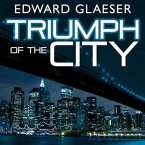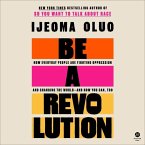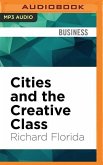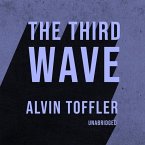America is an urban nation. More than two thirds of us live on the three percent of land that contains our cities. Yet cities get a bad rap: they're dirty, poor, unhealthy, crime ridden, expensive, environmentally unfriendly. Or are they? As Edward Glaeser proves in this myth-shattering book, cities are actually the healthiest, greenest, and richest (in cultural and economic terms) places to live. New Yorkers, for instance, live longer than other Americans; heart disease and cancer rates are lower in Gotham than in the nation as a whole. More than half of America's income is earned in twenty-two metropolitan areas. And city dwellers use, on average, 40 percent less energy than suburbanites. Glaeser travels through history and around the globe to reveal the hidden workings of cities and how they bring out the best in humankind. Even the worst cities--Kinshasa, Kolkata, Lagos--confer surprising benefits on the people who flock to them, including better health and more jobs than the rural areas that surround them. Glaeser visits Bangalore and Silicon Valley, whose strangely similar histories prove how essential education is to urban success and how new technology actually encourages people to gather together physically. He discovers why Detroit is dying while other old industrial cities--Chicago, Boston, New York--thrive. He investigates why a new house costs 350 percent more in Los Angeles than in Houston, even though building costs are only 25 percent higher in Los Angeles. He pinpoints the single factor that most influences urban growth--January temperatures--and explains how certain chilly cities manage to defy that link. He explains how West Coast environmentalists have harmed the environment, and how struggling cities from Youngstown to New Orleans can shrink to greatness. And he exposes the dangerous anti-urban political bias that is harming both cities and the entire country. Using intrepid reportage, keen analysis, and eloquent argument, Glaeser makes an impassioned case for the city's import and splendor. He reminds us forcefully why we should nurture our cities or suffer consequences that will hurt us all, no matter where we live.

Mehr als die Hälfte der Weltbevölkerung lebt heute in Städten, und der Trend zur Urbanisierung hält an. In seinem leidenschaftlichen Lob der Stadt als Ort der Innovation und Inspiration unterstreicht der in Harvard lehrende Ökonom Edward Glaeser die positiven Effekte solcher Verstädterung. Sein Buch ist eine Denkschrift gegen die durch niedrige Energiepreise und Steuervorteile für Hauseigentümer begünstigte Abwanderung vieler Amerikaner in die Vorstädte. Das Leben in Städten sei nicht nur ökologisch verträglicher und gesünder, es stimuliere auch wirtschaftliche Entwicklung und bringe viele zu Wohlstand. Nicht nur Bangalore und Silicon Valley, auch die Slums von Lagos und Rio de Janeiro preist er als Laboratorien unternehmerischen Erfindungsreichtums. Leipzig lobt Glaeser für stadtplanerisch geordnete Gesundschrumpfung, obwohl er ansonsten nicht viel für eingriffsintensive Regulierungspolitik übrighat. Der Ökonom votiert für radikale Stadterneuerung, für immer höhere und dichter gestaffelte Gebäude. Von Denkmalschutz zur Erhaltung spezifischer städtischer "Eigenlogik" (Martina Löw) hält er wenig. Dabei hat das Sicherheitsniveau einer Stadt, für Glaeser so wichtig wie Bildungsmöglichkeiten, viel mit der Atmosphäre, dem "Charakter" eines städtischen Raums zu tun. Der aber ist für Gläser vor allem Kommunikationsraum, Markt der Ideen. Dass räumliche Nähe in Zeiten globaler Vernetzung wertvoller ist denn je, das konnte man längst bei Saskia Sassen lesen, deren einflussreiche Studien zur Stadtsoziologie Glaeser aber offenbar gar nicht zur Kenntnis genommen hat. (Edward Glaeser: "Triumph of the City". How Our Greatest Invention Makes Us Richer, Smarter, Greener, Healthier, and Happier. The Penguin Press, New York 2011. 338 S., geb., 19,95 [Euro].) ake.
Alle Rechte vorbehalten. © F.A.Z. GmbH, Frankfurt am Main








